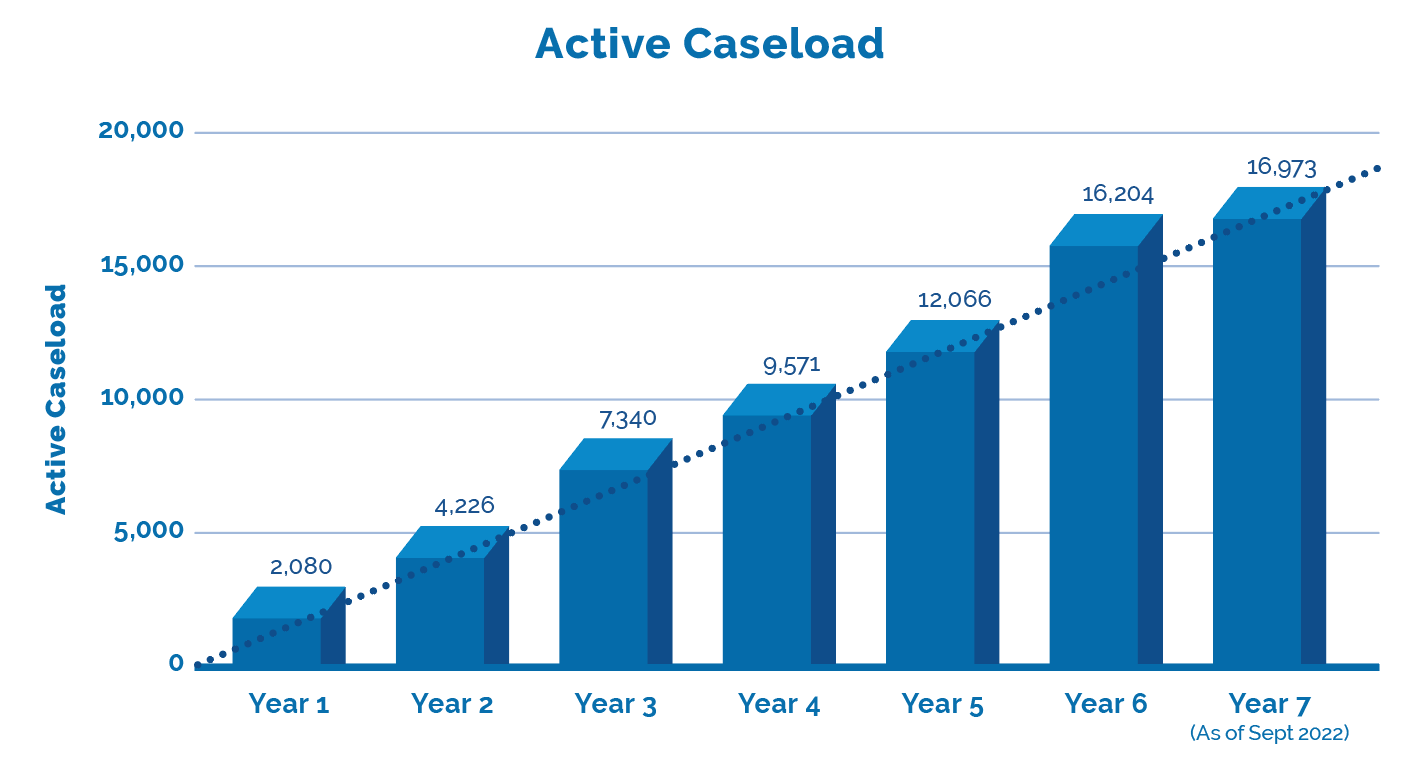
MIG Update – April 3, 2023
Diagnoses 2+ Years Post MVA Warrant MIG Escape
This week, a MIG escape case where the Tribunal considered the causal relationship between the applicants psychological and chronic pain diagnoses rendered 2 years after the subject accident.
LAT Update – What Difference Did A Year Make?

The LAT released Performance Stats up to mid-year 7 which is current through to the end of September 2022. Together with the LAT’s last update we can now provide a comparison of year over year, with projections through to the end of year 7 in this annual update. What difference did a year make?
Factor: Probable Cause
In Jeong v. Certas Home and Auto Insurance Company (21-000919), Soohyun Jeong was involved in a motor vehicle accident on October 18, 2018 and she experienced back, neck, hip, leg, and shoulder pain immediately and, being pregnant at the time, fear and shock out of concern for her pregnancy. She claimed that she suffered from a psychological impairment, and chronic pain, and should not be subject to the MIG.
Jeong relied on the February 2021 report of D. Ross, a licensed Clinical Social Worker and Psychotherapist who was supervised by Dr. A Seif, a physician and psychiatrist who diagnosed Jeong with accident related Major Depressive Disorder, single episode, in the severe range with anxious distress; Somatic Symptom Disorder, with predominant pain, in the persistent range, at severe levels and Specific Phobia, situation type – vehicular.
Jeong also relied on the February 18, 2021, chronic pain assessment report of Dr. Jianfar and Dr. Mohsini who diagnosed her with chronic pain concluded that she was unable to perform activities of daily living, including her care-giving duties and housekeeping activities in the same way she could pre-accident.
Certas argued that the psychiatric assessment report should not be relied upon as it took place 842 days post-accident. Further, there wasn’t any corroborating evidence from a healthcare provider to support the psychological diagnosis.
Certas further argued that the chronic pain assessment report and diagnosis should not be relied upon given the assessors did not engage with the criteria in the American Medical Associations 6th Edition, Guidelines for Chronic Pain (AMA Guides). Joeng had not demonstrated that she has met three of the six criteria listed in the AMA Guides.
The Tribunal found:
- The psychological assessment report of D Ross and Dr. Seif was persuasive and that the assessors are qualified to make the diagnosis that they did and they relied on a thorough examination and psychometric testing which led them to their conclusion.
- Certas has not provided any expert report to refute the findings of the psychiatric assessment conducted by psychotherapist Ross and Dr. Seif.
- The fact that there was no corroborating evidence didn’t mean that the report was unreliable.
- “The accident-related psychological disorders Jeong has been diagnosed with warrant her removal from the MIG.”
- The chronic pain assessment report of Dr. Jianfar and Dr. Mohsini concluded that Joeng was unable to perform activities of daily living, including her care-giving duties and housekeeping activities in the same way she could pre-accident.
- The chronic pain assessment report which found that “to a reasonable degree of medical certainty, there is a probable causal relationship between the current complaints and the subject accident.” The applicant should be removed from the MIG as she has developed chronic pain as a result of the subject accident.’
- Certas did not submit any evidence to refute the chronic pain diagnosis rendered by dr. Jianfar and Dr. Mohsini.
If you Have Read This Far…
Our MIG Monday series discusses the multitude of factors to consider when evaluating a risk position on MIG cases. The Tribunal has ruled on the MIG in 24% of the decisions so far. Each case is nuanced, but with similar factors.
Inform your position & present persuasive arguments. Include an Outcome Analysis Report (OAR) in your case evaluation complete with For/Against cases. Need an OAR?
inHEALTH Keeps you LAT inFORMED With Access To:
1. LAT Compendium Database – a relational database of LAT and Divisional Court Decisions equipped with multiple search options, Smart Filters, and concise case summaries
2. Notifications: – weekly LAT inFORMER delivered to your inbox Wednesdays; Newly Added Decisions on Fridays and Breaking News as and when it happens
3. Research Support: – inHEALTH’s Live Chat Experts for guided searches and technical inquiries.
Sign up for a 14 day free trial below to experience the service and see how it can help guide your decision making.
